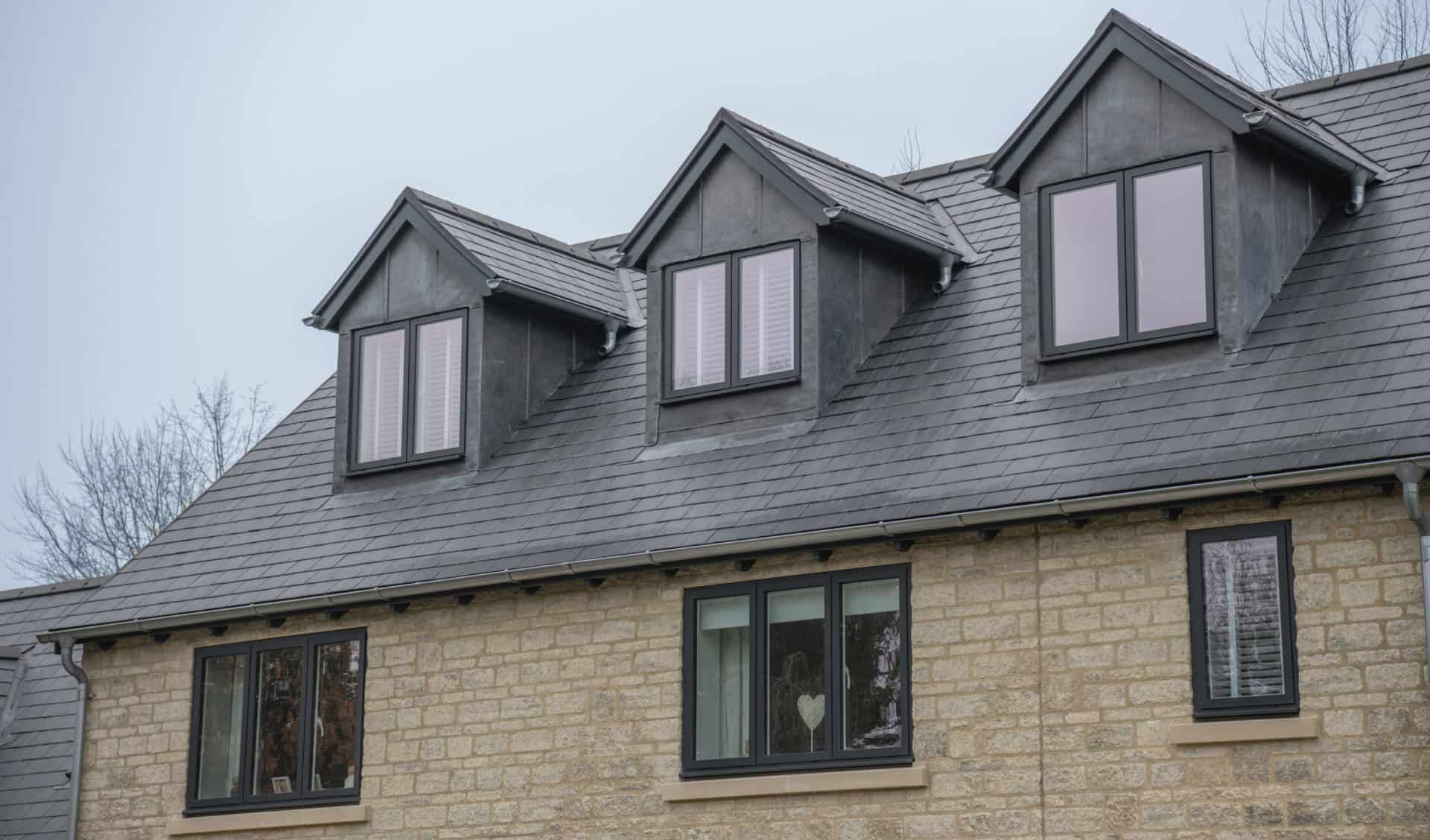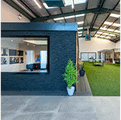Providing spectacular views and illuminating the dingiest of spaces, the right type of window can do wonders for bringing your dream home to life. But while a dedicated picture window or shaped window will certainly add a dramatic flair to your property, sometimes, all you need is a casement window to get the most out of your surroundings.
The most common type of window found in UK homes and defined by their square panes and hinged opening, casement windows offer a functional yet humble and timelessly stylish aesthetic.
From their unassuming shape to their ventilation convenience, casement window setups, are not only incredibly versatile in their potential layouts, but with the right pane arrangement, they can conjure up some truly breathtaking vistas of your garden and the surrounding area.
But while casement windows are a strong all-around choice, that doesn’t mean they’re necessarily the right window choice for your next home project. So, to help you see if their distinct style is right for your home, we’ve broken down exactly what casement windows are, their pros and cons, and the different casement window types you can buy.
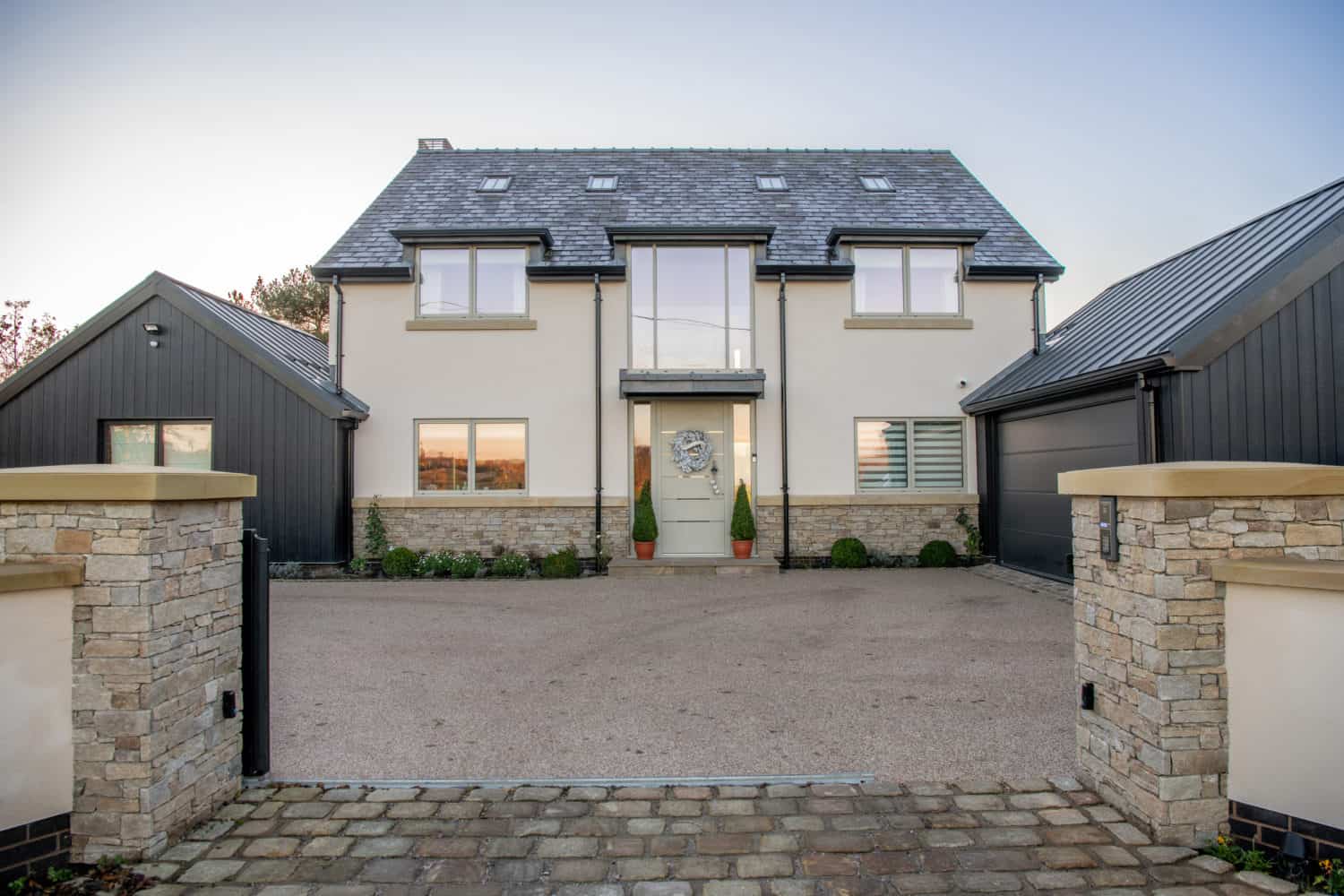
WHAT ARE CASEMENT WINDOWS?
First things first, let’s touch on exactly what casement windows are, and how they differ from other window types that might share similar properties and features.
Essentially, any window can be classed as a casement window, so long as it’s hinged at either the side, top, or bottom of the frame, thus allowing the window to be opened to a reasonable degree for ventilation purposes.
And that’s basically it. Casement windows really are that simple a concept.
Of course, because of this defining feature, you’ll likely find that plenty of shaped windows and bay windows can also be classed as casement window types because they include this distinct hinged feature, so don’t worry if you see designs sharing different names. Instead, think of casement windows as an encompassing term for many window types.
WHAT ARE THE PROS AND CONS OF CASEMENT WINDOWS?
While windows in a casement setup might be the most common window type in the UK, that doesn’t mean they don’t come with their own set of specific pros and cons, which is exactly why we’ve outlined what these are below:
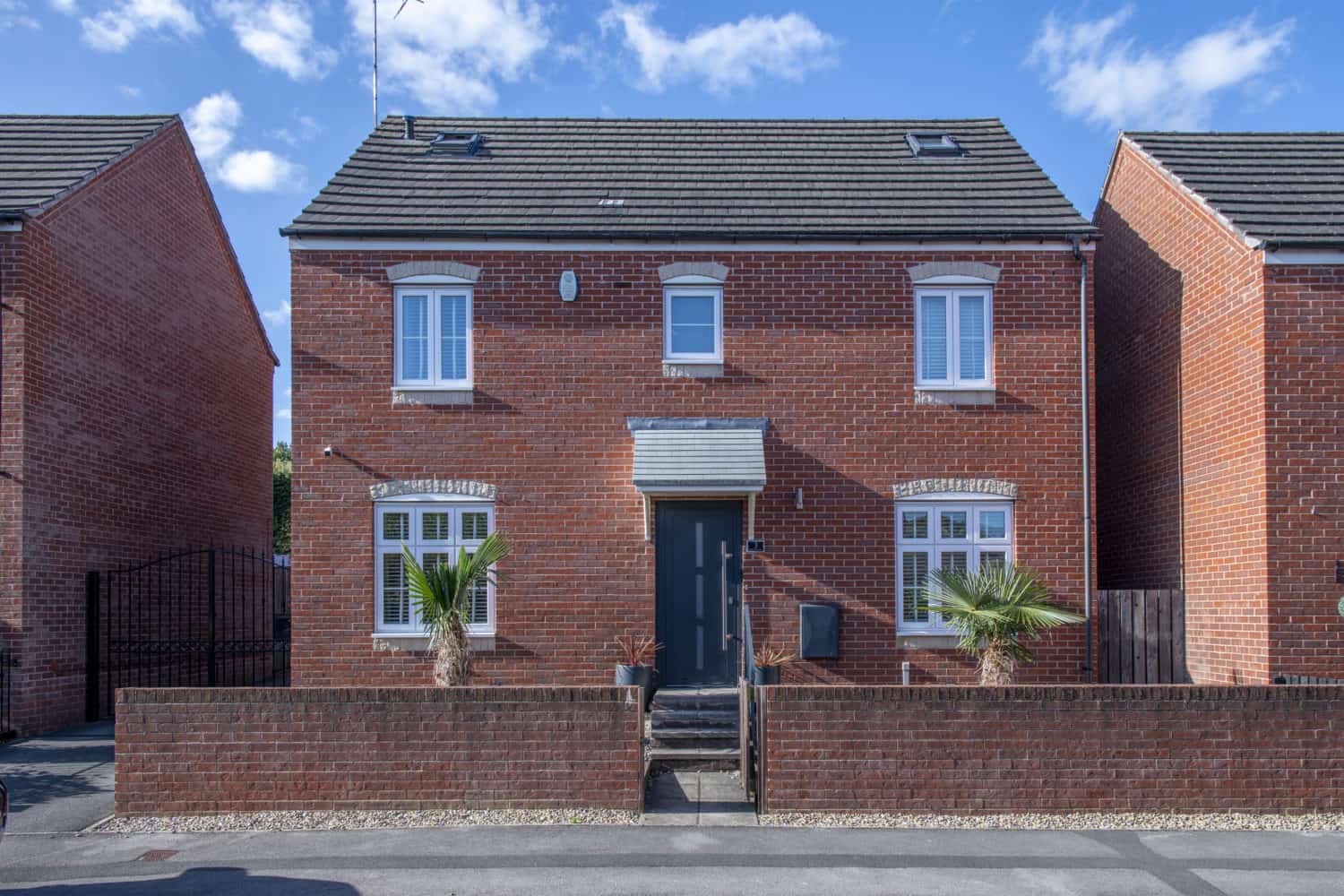
WHAT ARE THE PROS OF CASEMENT WINDOWS?
As we’ve mentioned already (and you may have already guessed), the biggest advantage casement windows hold over other styles is their flexibility – both in installation and opening ability – but these sorts of windows also excel in many other areas. For example:
- Versatile style – despite their modern aesthetic, casement windows are one of the oldest styles of window in the UK, letting them fit into just about any home aesthetic or layout.
- Material choice – thanks to their widespread adoption, casement windows can be constructed from a variety of materials, including aluminium, timber, and uPVC, making it easy for you to find the right style to match your home.
- Glazing options – alongside a nice selection of material options, casement windows can be constructed with varying levels of glazing, giving your home better heat retention overall.
- Energy efficiency – given their glazing potential, it probably comes as no surprise that casement windows are also one of the most energy-efficient window options on the market, helping to keep your home warm and heating costs low throughout the year.
- Secure locks – being hinged windows, you’d expect casement frames to have good locks, and you’d be right. From traditional lock cylinders to modern locking pins, casement windows are some of the most secure designs available.
- Easy opening – dedicated casement windows are some of the easiest windows to open, requiring little more than a twist of the handle and a push or pull to let in fresh air. But if you’re feeling lazy, you can instead pick a window set up with a built-in crank which you can use to open them at your leisure.
WHAT ARE THE CONS OF CASEMENT WINDOWS?
Of course, as we’ve already mentioned, with the above advantages come a few disadvantages as well, the most important of which include:
- Limited size – due to the nature of their construction, there is a limit on how big you can make a casement window. This is because the weight of the glass being used must be taken into account to ensure everything stays in working order and the hinge doesn’t break. So, if you’re after a panorama view, you might want to consider picture windows instead.
- Limited compatibility – besides size restrictions, casement windows are also not compatible with additional window extras, such as external screens or storm window fittings, making them ill-suited to areas that experience regular adverse weather conditions.
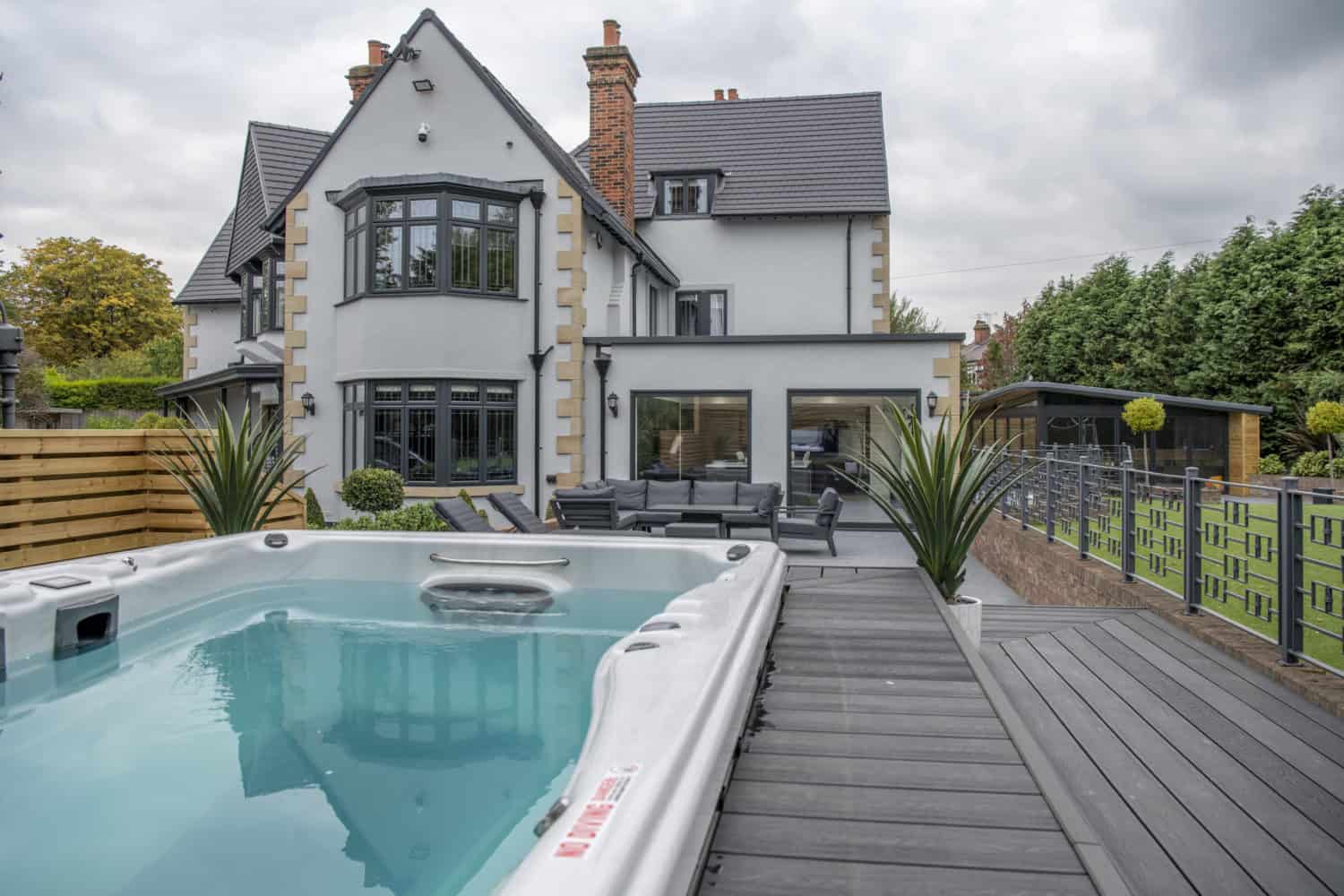
WHAT ARE THE DIFFERENT CASEMENT WINDOW TYPES?
Now that you know what casement windows are and their pros and cons, let’s quickly touch on the different types of setups you can expect to find when browsing for this window type:
- Side hung – the most common type of casement, this style is made from single panel windows hinged at the side that can swing outward or inward.
- French casements – two-panel windows that operate in the same manner as side-hung casements, the French style is defined by the central mullion running down the middle of the frame.
- Top hung – arranged in a similar way to side hung casements, this type of casement fitting is hinged at the top and swings outwards.
- Bottom hung – operating in the same manner as top hung styles, bottom hung casements are hinged at the base of the frame instead and are most often used in apartments or on upper floors.
- Fixed casements – finally, fixed casements lack any opening capacity but maintain the same style as other casement options. However, they’re typically fitted in configurations with other openable windows sat on either side of them, giving you all of the same advantages with the addition of a bigger view.
WHAT ARE THE BEST ROOMS FOR CASEMENT WINDOWS?
With the clear display of versatility above, it goes without saying that all of these window types can be used in various areas of your home and stylised to your preferences, and it’s not uncommon to see multiple casement window types used in tandem with each other.
However, that’s not to say that casements aren’t better suited to one area over another, and they’re often at their best when installed in rooms you want to ventilate or that look over your garden, so you can appreciate the view while cooling you home during the summer months.
With this in mind, bedroom windows, kitchen windows, and living room windows are typically best suited to having casement windows fitted into them, as a breeze of fresh air can do wonders to remove persistent smells and revitalise these busy rooms.
However, other good candidates for casement window installation also include conservatories and offices, letting you gently ventilate these well-used spaces on hot days.
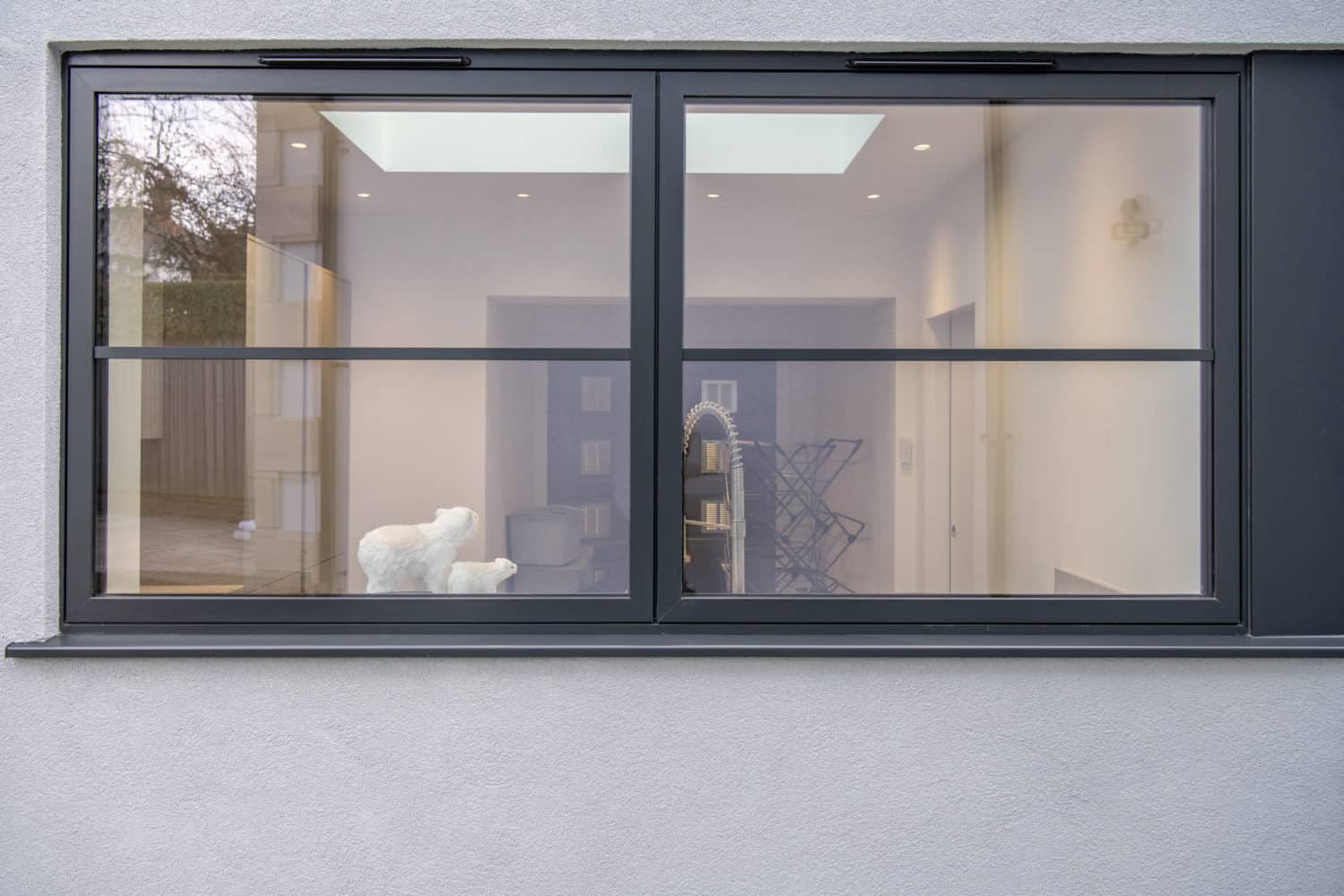

POPULAR CASEMENT WINDOW IDEAS
So, with all the nitty-gritty surrounding casement windows out of the way, what are some of the ways in which you can style your new frames to best match your current home aesthetic?
Well, truth be told, your options are pretty far-reaching, as casements can be arranged in practically any setup and designed to use various materials or colours to bring your vision to life.
Of course, that’s not to say there aren’t several well-loved and commonly used layouts that make use of casement windows in their design, which is why we’ve listed out a few of the more popular displays below:
- Awning casements – made from a combination of fixed casements lined by several top-hinged windows, this arrangement of panes allows you to open your top-hinged windows for ventilation purposes without breaking up your views.
- Bay window casements – as nice as bay windows are for creating a cosy reading space or a focal point for your living room, they can be made even better with the addition of a top or bottom-hung casement feature.
- Stair casements – while not always possible, if you find your staircase to be a little dim, the addition of a small, top-hinged casement window can do wonders for both brightening the space and freshening the air.
- Café casements – an iconic window style choice in France, whether in your kitchen or living space, you can recapture a Parisian-style café feel by having a simple set of French casement windows by your kitchen table or reading spot to let the breeze in.
- Garden casements – while not directly featured in your home, if you have a garden room that you use to work from or as a space to relax, casement windows of any kind can be a great choice for adding flexibility to their use.
Naturally, these are just a few of the more popular casement setups, and we encourage you to take a look around to see what other fantastic designs people have come up with to let light into their homes.
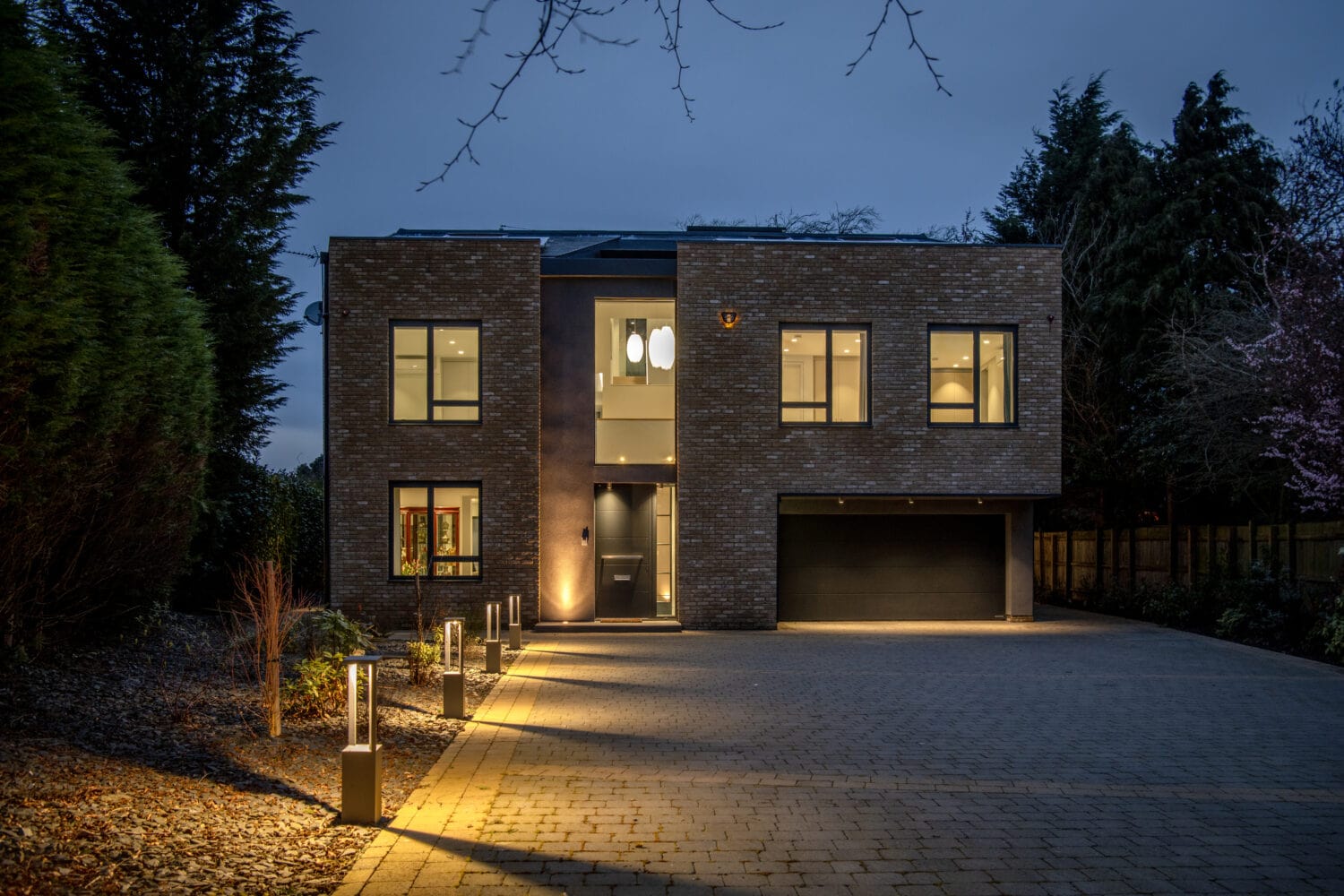
CHOOSE EXPRESS FOR YOUR WINDOWS
And there you have it, that’s everything you need to know about casement windows, their pros and cons, and styling potential. We’ve also no doubt that you already have an area of your home in mind that’s perfect for just such a frame – meaning all that’s left to do is to get in touch with Express to discuss your installation plans or download our free brochure to see our full product specifications.
With decades of experience under our belt, our expert team of designers and fitters make it their mission to bring your dream aluminium windows to life. Speak with us today to see how we can help and don’t forget to visit one of our showrooms to look at our full range of products.
And in the meantime, you can find out more about other window types and home renovation ideas over in our blog.
